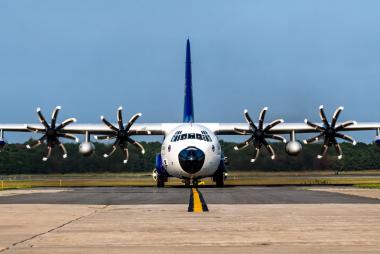Research Aircraft to Investigate Monsoon-Climate Connections
In August, two research aircraft will allow a team of international scientists to study how the Asian summer monsoon — one of the largest and most important meteorological patterns in the world — affects atmospheric chemistry and global climate.
The Asian Summer Monsoon Chemical and CLimate Impact Project (ACCLIP) is supported by the U.S. National Science Foundation (NSF) and co-led by NSF’s National Center for Atmospheric Research (NCAR) and NASA. It will be based out of the Osan U.S. Air Base in South Korea.
While the monsoon is most often associated with the deluge of moisture it brings to the Asian continent, the ACCLIP research team is not focused on the rain that comes down. Instead, they’re interested in what the powerful circulation of the monsoon pulls back up. Since the monsoon occurs over some of the regions in the world with the worst air quality, scientists think a wide range of pollutants may get sucked high into the atmosphere. The resulting redistribution of chemicals — and their reactions with one another — can have a significant impact on the climate.


